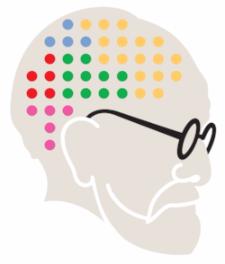Works in Progress Seminar: Mind and Consciousness
-
April 3, 2019
8:00 pm - 10:00 pm
Works in Progress Seminar:
“Mind and Consciousness”
Wednesday, April 3, 2019
8:00 pm
Presenter: Terence Rogers, Ph.D.
With the larger aim of formulating a model of the human mind that acts as a bridge between clinicians and neuroscientists, we suggest that it is possible to clarify some of the questions that have vexed psychodynamic and psychoanalytic thinking for a long time. Two examples, “What is a Mind”, and, “What is Consciousness” will be addressed and their connection to topics such as awareness, subjectivity and attention will be touched on. We shall also address Chalmer’s “Hard Problem”, and initiate a discussion on the way in which classic Freudian models of the mind can be interpreted within these conceptions. We will not address therapeutic techniques, except in a very general sense.
No CME or CE credits offered.
Dr. Rogers holds a Ph.D. from Cambridge University (UK) in the Theory of Elementary Particle Physics, and a B.Sc., also from Cambridge, in Natural Sciences (1st Class Honors). He was then awarded a Harkness Fellowship to carry out research at Princeton and Berkeley Universities. He left academia and worked for IBM from 1970 to 1990, becoming a Group Director, and from 1990 to 1999 he held executive positions in several software companies, including being CEO of a (failed) Internet startup. In 1999 he was asked to lead a national project to build an alternative Internet, which was announced at the White House and became the most powerful network in the world. Subsequently, Dr. Rogers became President and CEO of the International ThinkQuest Foundation an initiative for engaging 100,000 teenagers around the world in creating educational websites for other students. Between 2006 and 2012 Dr. Rogers worked on a proposal to redesign our K-12 Public School System, and his book “Fifty Million Futures” is to be published imminently. In 2013, he became Assistant Clinical Professor of Psychiatry, Icahn School of Medicine at Mount Sinai, where his research is devoted to applying his knowledge of complex systems to studying models of the mind.

